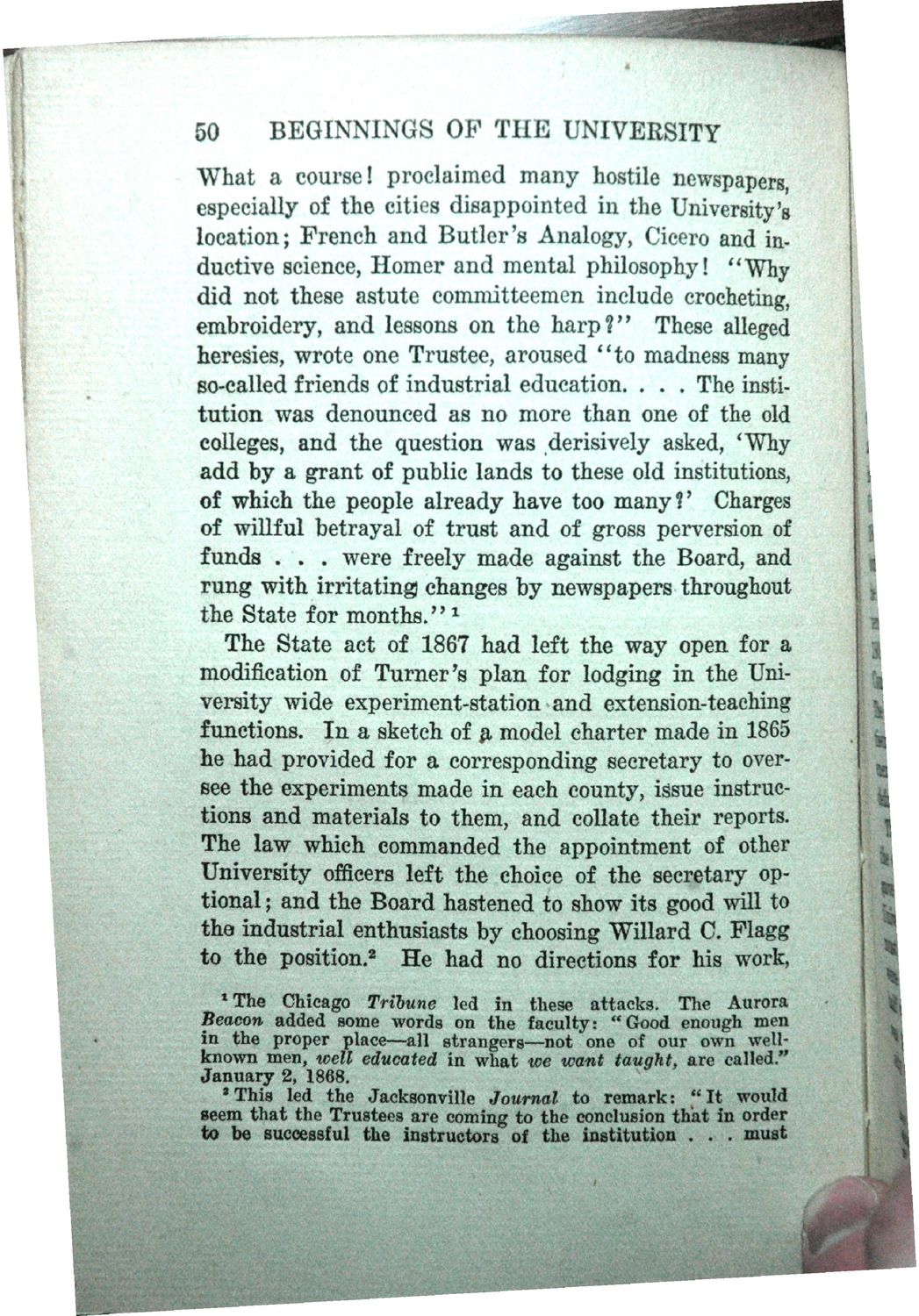| |
| |
Caption: Book - History of the University (Nevins)
This is a reduced-resolution page image for fast online browsing.

EXTRACTED TEXT FROM PAGE:
50 BEGINNINGS OF THE UNIVERSITY What a course! proclaimed many hostile newspapers, especially of the cities disappointed in the University's location; French and Butler's Analogy, Cicero and inductive science, Homer and mental philosophy! "Why did not these astute committeemen include crocheting, embroidery, and lessons on the harpf" These alleged heresies, wrote one Trustee, aroused "to madness many so-called friends of industrial education. . . . The institution was denounced as no more than one of the old colleges, and the question was derisively asked, 'Why add by a grant of public lands to these old institutions, of which the people already have too manyf Charges of willful betrayal of trust and of gross perversion of funds . . . were freely made against the Board, and rung with irritating? changes by newspapers throughout the State for months." * The State act of 1867 had left the way open for a modification of Turner's plan for lodging in the University wide experiment-station and extension-teaching functions. In a sketch of a model charter made in 1865 he had provided for a corresponding secretary to oversee the experiments made in each county, issue instructions and materials to them, and collate their reports. The law which commanded the appointment of other University officers left the choice of the secretary optional ; and the Board hastened to show its good will to the industrial enthusiasts by choosing Willard C. Flagg to the position.8 He had no directions for his work, *The Chicago Tribune led in these attacks. The Aurora Beacon added some words on the faculty: "Good enough men in the proper place—all strangers—not one of our own wellknown men, well educated in what we want taught, are called." January 2, 1868. *Thia led the Jacksonville Journal to remark: " I t would seem that the Trustees are coming to the conclusion that in order to be successful the instructors of the institution . # • . must
| |